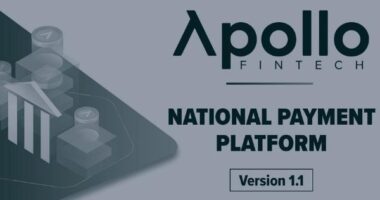Blockchain technology is often associated with cryptocurrencies such as Bitcoin, but it has the potential to revolutionize many industries beyond just finance. One area where blockchain can have a significant impact is data privacy. In this article, we will explore how blockchain technology can support data privacy and some of the ways it is currently being used to do so.
At its core, blockchain is a decentralized, distributed ledger that records transactions securely and transparently. This ledger is maintained by a network of computers, rather than a single central authority. Each block in the chain contains a list of transactions, and once a block is added to the chain, the data it has cannot be altered. This makes blockchain an ideal technology for protecting sensitive information.
One of the key ways in which blockchain supports data privacy is through the use of encryption. Every transaction on a blockchain is encrypted before it is added to the chain. This means that even if someone were able to gain access to the blockchain, they would not be able to view the sensitive information contained within the transactions without the proper decryption keys. Additionally, because each block in the chain is linked to the previous one, it is very difficult to alter or tamper with the data without being detected.
Another way in which blockchain supports data privacy is through the use of smart contracts. Smart contracts are self-executing contracts with the terms of the agreement written directly into code. These contracts can be used to automate a wide range of processes, including the management of data privacy. For example, a smart contract could be used to automatically delete personal information once it is no longer needed.
Blockchain technology is also being used to develop decentralized applications (dApps) which allow storing, processing, and sharing data in a more secure way. These dApps are built on top of a blockchain network and allow for the creation of decentralized platforms for data storage, management, and sharing. The decentralized nature of these platforms means that there is no central point of control and therefore, no single point of failure. Additionally, because the data is stored across the entire network, it is much more difficult for hackers to access or corrupt.
Another way in which blockchain technology is being used to support data privacy is through the development of privacy coins. These are cryptocurrencies that use advanced privacy features, such as stealth addresses and ring signatures, to conceal the identity of the sender and receiver. This makes it much more difficult for third parties to track transactions and view sensitive information.
One example of this is the Monero, a privacy-focused coin that uses a technique called ring signatures to conceal the identity of the sender, and stealth addresses to conceal the identity of the receiver. This makes it much more difficult for third parties to track transactions and view sensitive information.
In conclusion, blockchain technology has the potential to revolutionize the way we protect sensitive information. Its decentralized, distributed ledger structure and advanced encryption capabilities make it an ideal technology for protecting data privacy. Additionally, smart contracts and decentralized applications allow for automating data management processes, while privacy-focused coins make it more difficult for third parties to track transactions. As this technology continues to evolve, we can expect to see more and more innovative ways in which blockchain can be used to support data privacy.
Notice: Information contained herein is not and should not be construed as an offer, solicitation, or recommendation to buy or sell securities. The information has been obtained from sources we believe to be reliable; however, no guarantee is made or implied with respect to its accuracy, timeliness, or completeness. Authors may own the cryptocurrency they discuss. The information and content are subject to change without notice. Visionary Financial and its affiliates do not provide investment, tax, legal, or accounting advice.
This material has been prepared for informational purposes only and is the opinion of the author, and is not intended to provide, and should not be relied on for, investment, tax, legal, accounting advice. You should consult your own investment, tax, legal, and accounting advisors before engaging in any transaction. All content published by Visionary Financial is not an endorsement whatsoever. Visionary Financial was not compensated to submit this article. Please also visit our Privacy policy; disclaimer; and terms and conditions page for further information.












